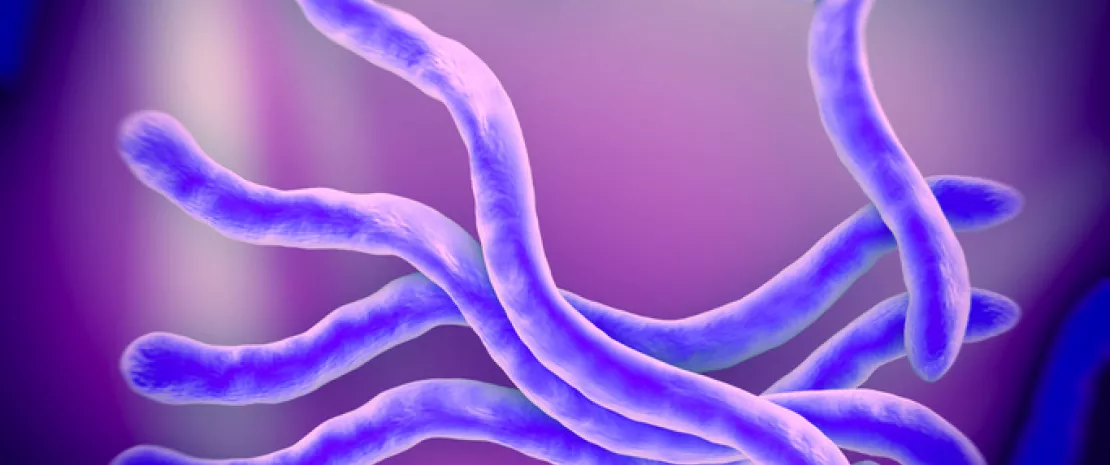Irritable bowel syndrome: role of Brachyspira revealed
The presence of Brachyspira in the colonic mucosa of some patients suffering from irritable bowel syndrome–now demonstrated for the first time–may be associated with certain symptoms of the disease, such as diarrhea.
Lay public section
Find here your dedicated section
Sources
This article is based on scientific information

About this article
The incidence of irritable bowel syndrome (IBS) increases following gastroenteritis episodes, suggesting that gut dysbiosis could play a role in its onset. However, research to date has focused on the microbiota of the intestinal lumen and has failed to find any clear link between the composition of this microbiota and IBS. Changing strategy, a team analyzed the bacteria present in the mucus lining of the colonic epithelium rather than that present in the lumen. This was done via sigmoid colon mucus samples taken from patients with IBS (with diarrhea, with constipation, with mixed bowel habits or unclassified) and controls.
Peptides indicating the presence of Brachyspira
Metaproteomic analyses on an explorative cohort (22 patients, 14 controls) identified microbial peptides derived from potentially pathogenic Brachyspira species in the mucus of 3/22 patients with IBS. Electron microscopy was used to confirm the presence of this bacterium, both at the colonocyte apical membrane and in the mucus. Quantitative real-time PCR (qPCR) combined with immunofluorescence analyses on the entire cohort (62 patients, 31 controls) detected Brachyspira colonization in 31% of IBS patients and in 42% of patients with diarrheal forms of the disease. No such colonization was observed in the controls.
Brachyspira colonizes colonocytes
The presence of Brachyspira specifically in the colonocyte apical membrane (as opposed to the mucus) was observed in 21% of the patients, and was associated with increased diarrhea and accelerated transit. These patients presented mild mucosal inflammation and mast cell activation. In addition, the abundance of mast cells was correlated with abdominal pain scores.
Antibiotics counterproductive?
In a final experiment, the researchers tested the effects of metronidazole in four patients. One year after treatment, three out of four saw a reduction in IBS severity. However, although Brachyspira was cleared from the epithelial surface, its presence in crypts and goblet cells may represent a novel mechanism of antiobiotic resistance. In conclusion, Brachyspira colonization in IBS (particularly at colonocyte level) appears to be associated with specific clinical, metabolic, and immune responses, thus providing a potential diagnostic tool for the different forms of IBS. In addition, antibiotic therapy in cases of IBS should be considered with caution due to the potential bacterial colonization that it could later cause.






